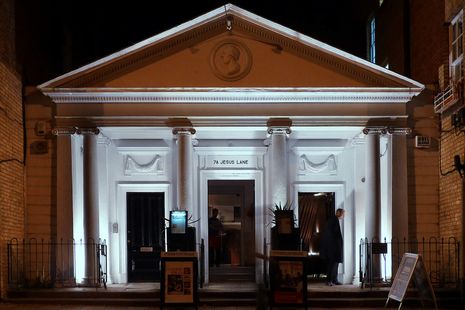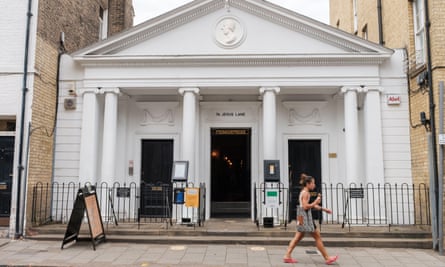The Pitt Club’s inevitable decline is a sign of the times
Like a dog shelter, the Pitt offers a cramped sanctuary for a whimpering, disintegrating upper crust

Forever in the crosshairs as Cambridge’s classist bogeyman, the Pitt club seems to have become a sort of universal lightning rod for criticism of student life at Cambridge. And it is easy to see why. Old, exclusive, and home to virtually every -ist and -ism, it is a neat microcosm of all that is wrong with Cambridge.
While much criticism is valid, I’m not here to defend what goes on behind the doors of 7a Jesus Lane. Not least because I don’t really care.
The hard truth is, institutions like the Pitt feed off the notoriety we give them. Like some Frankensteinian monster, each bolt of outrage directed at the decaying club gives it new life.
In fact, I think the Pitt’s overblown mythos makes people forget how shaky the club’s material existence actually is. For the entirety of my time at this university, the Pitt has been in a state of perpetual crisis, begging prospective donors to cough up for their “200th Anniversary Campaign Emergency Cash Appeal” for the past two-and-a-half years on their website. A mixture of declining interest in membership and the closure of Pizza Express on the ground floor of the club has left it in a pretty rough spot.
“Today’s Cambridge elite hail mainly from outside Britain”
While I myself have little interest in membership, I would actually be sad to see it go. Like Gorbachev’s Pizza Hut advert, Donald Trump’s NFT trading card grift, and Napoleon’s lonely exile in Saint Helena, the Pitt is the perfect Ozymandian monument to the ancient powers of Cambridge who are slowly perishing.
Old money and the snobs it bred used to rule Cambridge – just take a look at the Pitt’s alumni list. But now their clubhouse isn’t even good enough for Pizza Express – the most average of all average high street chains. It’s poetic justice in physical form.
This is, of course, not to suggest that Cambridge has become some classless utopia – only the fault lines have shifted elsewhere. Cambridge’s gilded class is clearly no longer the patrons of the Pitt.
The upper crust in Cambridge these days is far more diverse. From Californian beach-dwellers to Singaporean socialites, today’s Cambridge elite hail mainly from outside Britain. This is not to say that all international students are immensely privileged or that British students cannot be extremely well-off themselves, but a simple acknowledgement that a majority of the wealth held by students and their families now lies outside of this country.

‘If you really want to be a member, you probably shouldn’t be a member’: Pitt Club insider tells all
At first glance, it is curious that this is a fact which is usually left neglected when discussing economic justice in Cambridge. However, it is less surprising when you realise class in the UK is a deeply cultural construct. The main antagonists in the British class war are still a top hat-sporting, Tory-voting, King’s English-speaking, domineering Victorian aristocracy. But within this cultural narrative, there is simply no way to accommodate your perfectly pleasant, liberal American whose richer-than-God parents have lined up a cushy internship at McKinsey for them.
The truth is, much like the club they revel in, the old elite are on the way out. Behind they leave undoubtedly painful scars. Classism remains an issue all too common within British society at large and institutions such as private schools only keep these ghosts alive.
But the Pitt, by virtue of its decline, is no such institution. Like a dog shelter, it is simply providing a bit of a sanctuary for this whimpering class before its inevitable demise.
So I treat walking past the Pitt much like I would treat watching Black Rhinos on the Serengeti. I make sure to keep my distance, but I marvel at how these creatures who once ruled the land have been reduced to an embarrassingly precarious existence. How the mighty do fall.
 News / Deborah Prentice overtaken as highest-paid Russell Group VC2 February 2026
News / Deborah Prentice overtaken as highest-paid Russell Group VC2 February 2026 Fashion / A guide to Cambridge’s second-hand scene2 February 2026
Fashion / A guide to Cambridge’s second-hand scene2 February 2026 News / Downing Bar dodges college takeover31 January 2026
News / Downing Bar dodges college takeover31 January 2026 Comment / College rivalry should not become college snobbery30 January 2026
Comment / College rivalry should not become college snobbery30 January 2026 Lifestyle / Which Cambridge eatery are you?1 February 2026
Lifestyle / Which Cambridge eatery are you?1 February 2026










